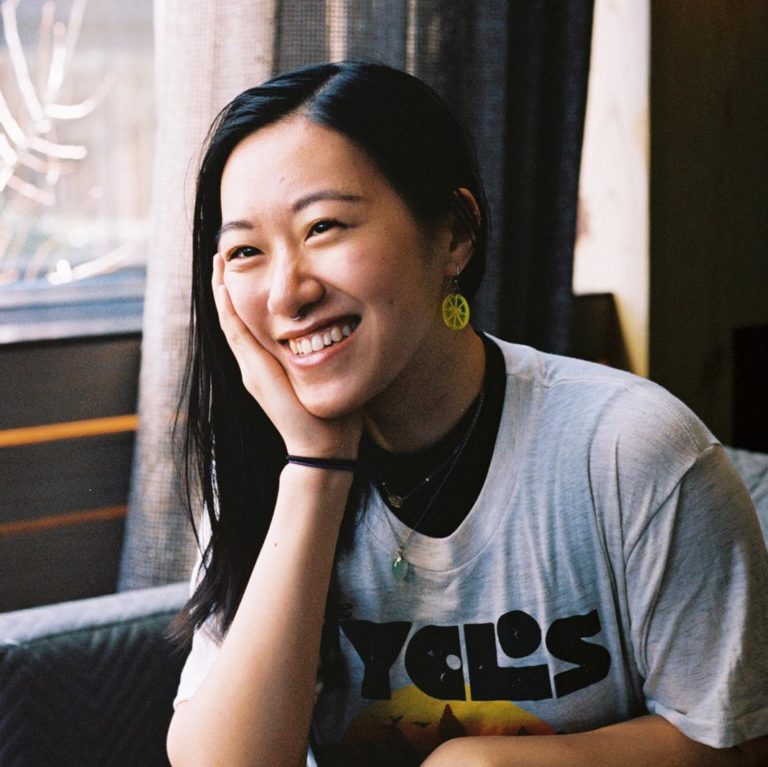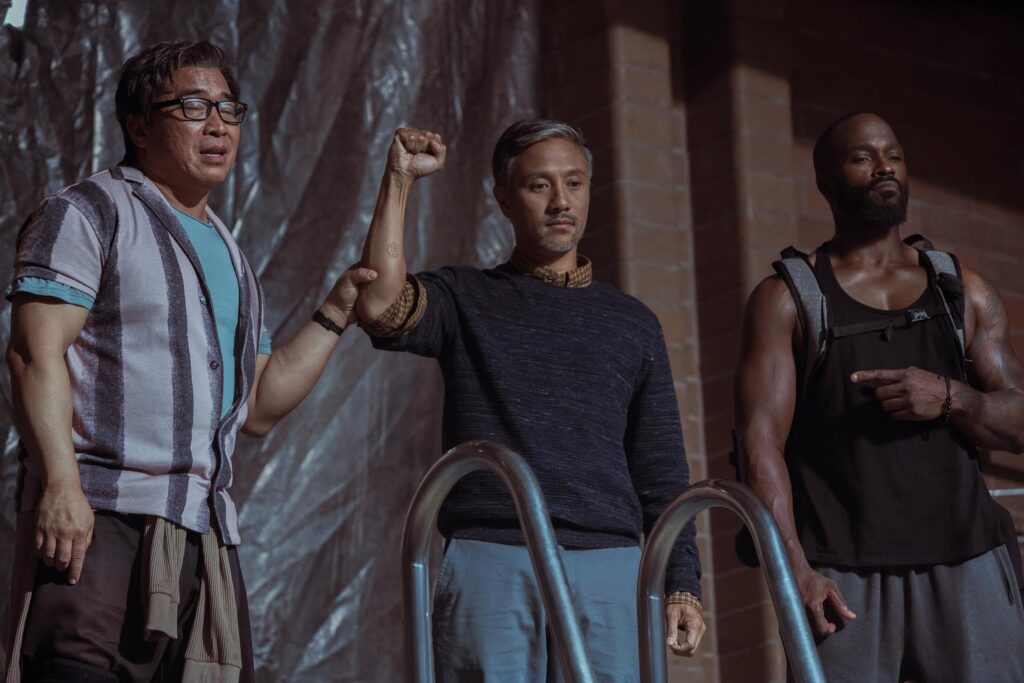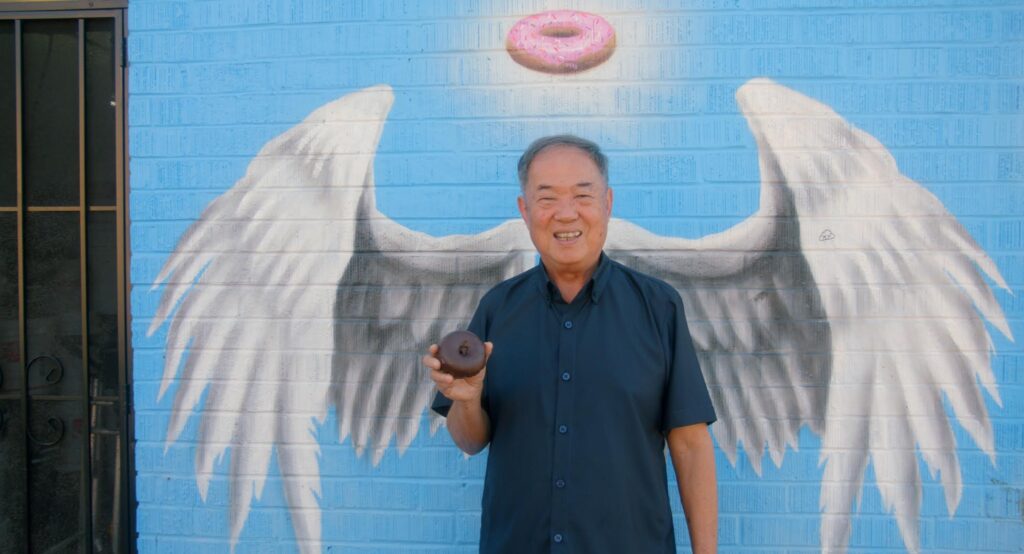
02 Nov A Very Well-Behaved Teenager: The Philadelphia Asian American Film Festival 2020
BY BEDATRI D. CHOUDHURY
Thirteen is a strange number; some consider it unlucky, some don’t really care, and some (like Neil Young) insist on it being, indeed, lucky. It’s also a curious age in a person’s life: one’s first year as a teenager—caught in that in-betweenness of not being a child anymore but also not an adult yet. It is a sentiment that Selena Yip, the Festival Director of the Philadelphia Asian American Film Festival, is well aware of. 2020 marks the thirteenth year of the festival’s existence, and what a year to step into one’s teens!

The festival’s 2018 edition had the theme of music running through its program, while in 2019, the program centred around the idea of the passage of time. “This year, the initial plan was to concentrate on the idea of the number thirteen and everything it stands for,” Yip says in a telephone interview. It made sense because the festival dates include November 13, which is a Friday this year. “I got excited,” says Yip, “I thought it’d be great to explore ideas of folklore, traditions, superstitions and how they make their impact on the Asian diaspora.” Then 2020 happened! There was too much despair in the world for a festival, that is so committed to its community, to focus on ghosts and ghouls, especially at a time when members of the community were not just dealing with a deadly virus but were also combating the rise of xenophobia and anti-Asian racism. “That’s when we pivoted to seeing turning 13 as a coming of age, especially with the circumstances forcing us to go virtual and forcing us to look at new ways of doing things. It’s a sort of trial by fire that forced us to grow up and make some hard decisions, in some ways,” explains Arzhang Zafar, a Philadelphia-based community organizer and a programmer for the festival.

The program that emerged includes a diverse set of films—shorts, documentaries, new and old ones—and discussions, performances, and showcases. Bao Tran’s The Paper Tigers, a film Yip is most excited about, is the festival’s opening film. “I think there’s something really interesting about martial arts films and how they have impacted not just the Asian diaspora but POC diaspora in general. So this film is really exciting to me, because it takes this genre of film and reclaims martial arts in the diaspora,” she says. She is equally excited about the panel called “Everybody was Kung Fu Fighting: The Global Impact of Martial Arts in Film”. Ky Nam Le Duc’s The Greatest Country in the World, a story of nationalism, fatherhood, and family, also finds pride of place in the festival’s narrative program, along with other films such as Sujata Day’s Definition Please and Kazem Mollaie’s The Badger. Zafar’s festival picks include Trinh Dinh Le Minh’s Goodbye Mother, which serves as the centerpiece narrative film: a beautifully told LGBTQ coming out story set in Vietnam, exploring the intersections of grief, family, traditions, and modernity.
The festival’s documentary slate, too, is impressive and diverse: from the story of an elderly Taiwanese immigrant obsessed with filmmaking (Xin Huang and Ye Bao’s Dream in Silence) to Kwong Yin Brian Hung’s Djembe in the 13 Streets, which explores the growing African community in Hong Kong. As Christine Choy and Renee Tajima-Peña’s 1987 documentary Who Killed Vincent Chin reminds us of the brutality endured by Asian American communities in America, Jing Liu’s Her Words celebrates the ingenuity and perseverance of Chinese women as they resisted patriarchy through a secret language. The closing night film, Alice Gu’s The Donut King, is all about the lesser known history of California’s Cambodian community and their invaluable contribution to America’s favorite snack–donuts! The shorts program, especially the “Uncertain Movements” slate curated by Zafar and Kacia Huynh on immigration and deportation, is an eye-opener and introduces the audience to the struggles of finding a home in the apparent land of the free. Other shorts programs explore the many other tiles that make up the colorful mosaic of the diasporic Asian identity.

But putting together this program was far from easy. As Huynh puts it, “We were not sure if we’d be able to reach the same level of engagement with the audience in a virtual festival,” says Huynh. While she and her team do not think there is a marked difference between programming a virtual festival and a live one, they were aware of the many reservations people have against online festivals. As Huynh and Yip explained, a lot of filmmakers are not enthusiastic about virtual releases. “The biggest concern for us was being able to provide a space for filmmakers, where they could interact with an audience,” says Yip. “Having said that, I am very excited to see how audiences interact online,” Huynh adds.
Community lies at the heart of not just the program but also the festival. The virtual nature of the festival this year has taken away the community’s chance to convene in a physical space, but it has also erased the boundaries of distance that kept some audiences away from the festival. “There is so much to learn from this year. It will determine if we will keep having a virtual component to the festival even when it’s safe to hold a live festival,” says Huyhn.
As is the nature of a teenager, the Philadelphia Asian American Film Festival is taking small but sure steps towards building a community, a community that it will revel in and contribute to at the same time. Thankfully, there is no teenage angst to be seen, only dedication and the intent to celebrate the diasporic Asian experience.
Philadelphia Asian American Film Festival runs virtually from November 5-15, 2020, and you can view the schedule here and buy tickets here. cinéSPEAK is proud to be an official PAAFF 2020 Community Partner.

Bedatri D. Choudhury works with documentary films and is a culture journalist. Born and raised in India, she lives in New York City.

Sorry, the comment form is closed at this time.